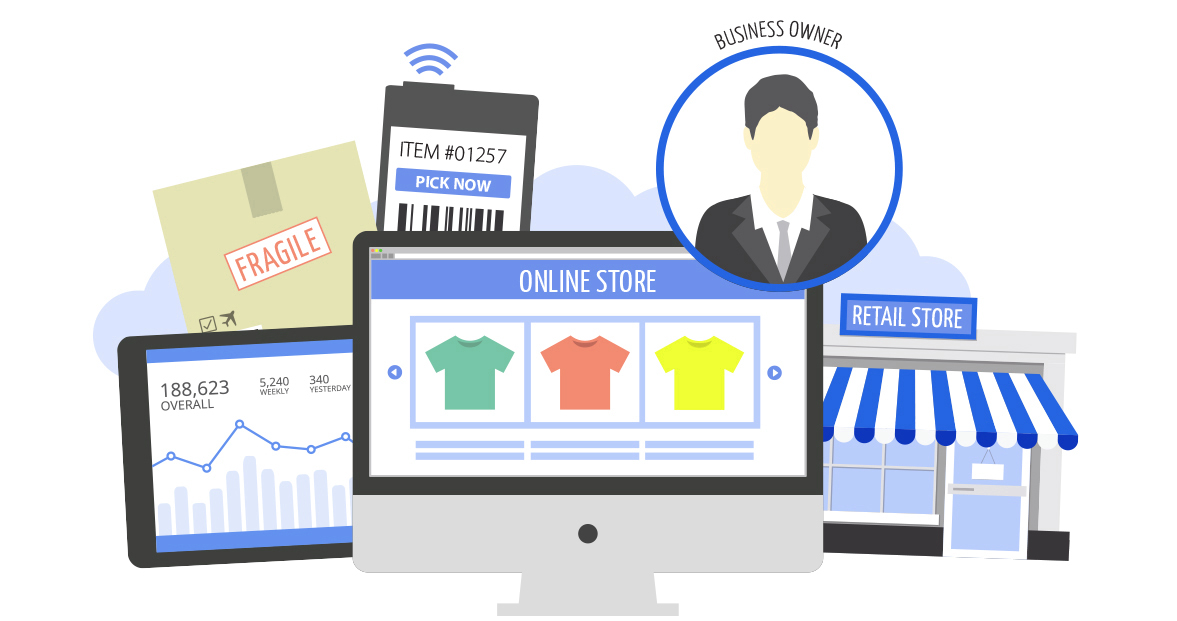4 tips for e-commerce accounting
4 tips for e-commerce accounting that will make YOUR life easier

Accounting for an E-commerce Businesses
It’s always a difficult time of year. You’re inundated with things to do. The tax forms are in the post, your draw full of receipts is overflowing and your (most likely) fed up with looking at your desk and computer screen.
All this can only mean that one thing is near on the agenda: Tax Season. Unless your e-commerce store’s finances are in good check and you’ve remained prepared, tax season is generally a stressful time of year.
Fortunately, The Buxton Partnership, have got some tips that can really help make your online business accounting and tax filing a whole lot easier for the next time you’ve got to do.
Tip 1 – Integrate Your Accounting Software with Your Online Store
If you’re still working out your accounting in a notepad or scrap paper – you need an update. An investigation by HMRC into your business accounts is the last thing you want, especially when it’s now so easy to do accurately online.
Here at The Buxton Partnership, we offer a range of Cloud Bookkeeping software. It’s simple to use, helps you keep track of your money and it even integrates with our other cloud products. This software allows you to easily produce and catalogue invoices, keep a running register of bank deposits and pay-outs and see your current inventory and past purchases at the click of a button.
Utilising such accounting software and then integrating it with your store keeps your books accurate and up-to-date. It also acts as a great mechanism to save time by cutting down on you having to manually input your own calculations – which would then allow you to concentrate your focus elsewhere.
Additionally, when you decide to hire an accountant, these types of software will grant them easy access to your business reports and information, with all your transactions located in one place.
Tip 2 – Keep a Record of All Expenses & Revenues
If your online store has been up and running for more than a year, then you know the importance of correctly recording business expenses and revenues.
Many expenses are tax allowable, which then reduces your business’s taxable income. This includes things like shipping costs and website domain and hosting fees. Outgoings to services like bookkeepers and accountants are also tax deductible – Excellent, making them even better value!
With every purchase, you need to ensure you get a receipt. The importance of this cannot be stressed enough – the receipt is your proof. It details the transaction date, product or service information, and the price. Side note: don’t lose the receipt. This would be a bad move.
We would recommend keeping your previous 6 years receipts, too. It may sound inconvenient and unnecessary, but you can be audited as far back as six years. Plus, if you don’t want to keep the paper copies, there are now apps like Evernote and Expensify that allow you to store receipts the paperless way. HMRC are happy with this method of keeping invoices and records.
Tip 3 – Reconcile Your Accounts Regularly
The majority of accounting software available on the market allow you to connect your bank account, which then gives you the ability to automatically download and sync transactions. This is great as it saves you the time and effort of having to manually enter all banking transactions, which is really helpful when reconciling your accounts.
You might be wondering what ‘reconciling your account’ actually means. Well, basically it means taking two sets of records (your bank and accounting software) and making sure they both align with each other. This is really beneficial as it can highlight transaction errors, duplicate and fraudulent charges, whilst simultaneously giving you peace of mind knowing that all credits and debits have been processed successfully.
When you’ve integrated your accounting software with your bank, you’ll then have the ability to categorise transactions as they come in throughout the week and month. Then, once the month’s end comes, you can run a reconciliation report that will automatically match your transactions.
If you do this regularly (preferably at least monthly), you’ll be able to easily highlight any discrepancies when things don’t balance correctly, which can allow you to quickly get things back on track.
Tip 4 – Know Your Deadlines
Tax Deadlines are like wedding anniversaries – if you forget the repercussions could be catastrophic and they are usually a pain to prepare for. But, while your partner may not be too happy for the day and eventually forget about it, HMRC won’t forget. And missing a tax deadline can result in heavy penalties.
Please ask us if you are worried about when your taxes are due. We are here for you.
Get Ready…
Accounting may seem a tedious part of running an online business but knowing how to do it right is guaranteed to improve your business. Paying close attention to your numbers can pave the way for improved time management, productivity, and sales.
If any of this seems complicated or you want some more information, how about a free consultation? That’s right, FREE. Get in touch



